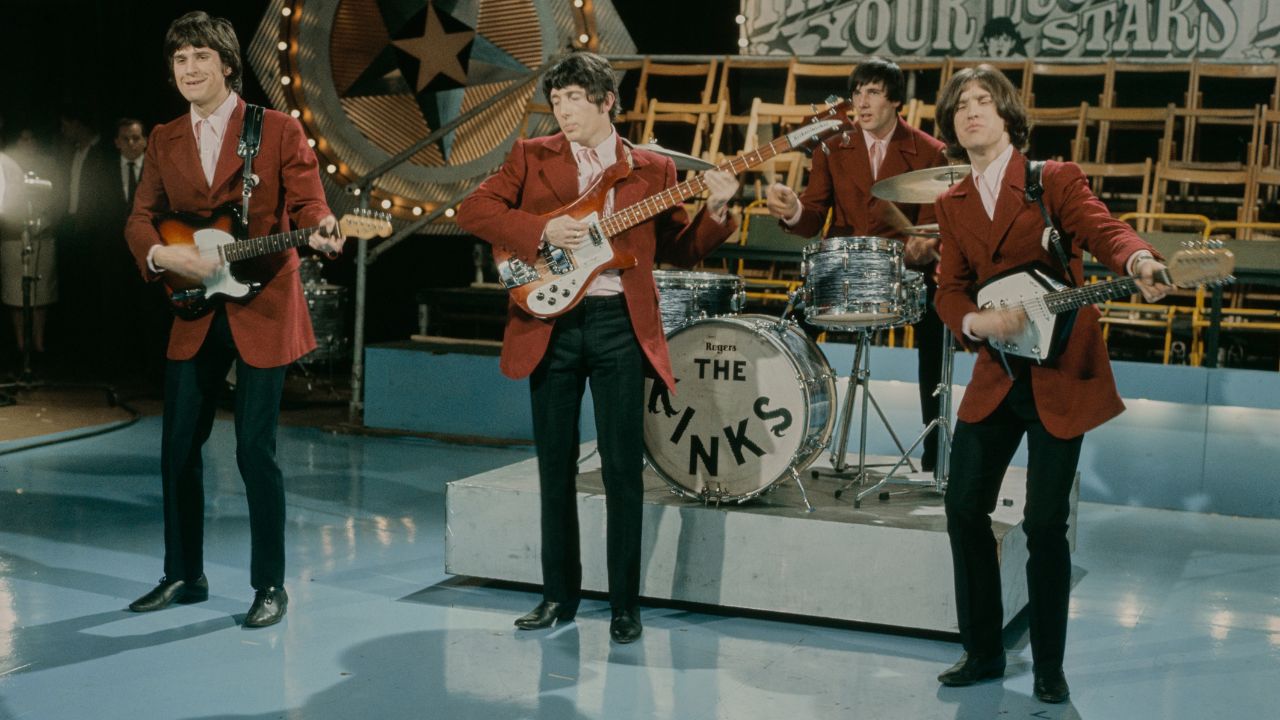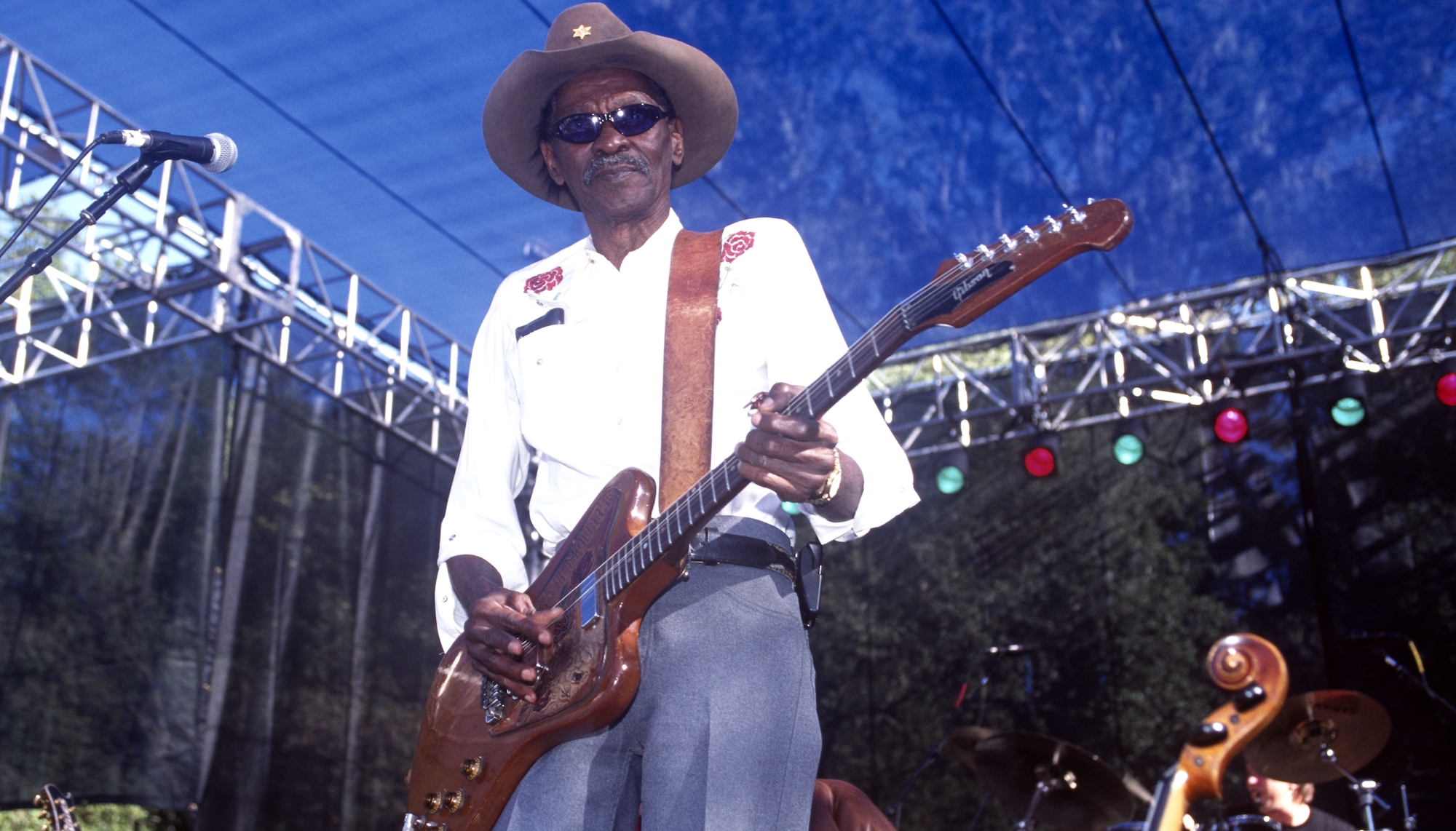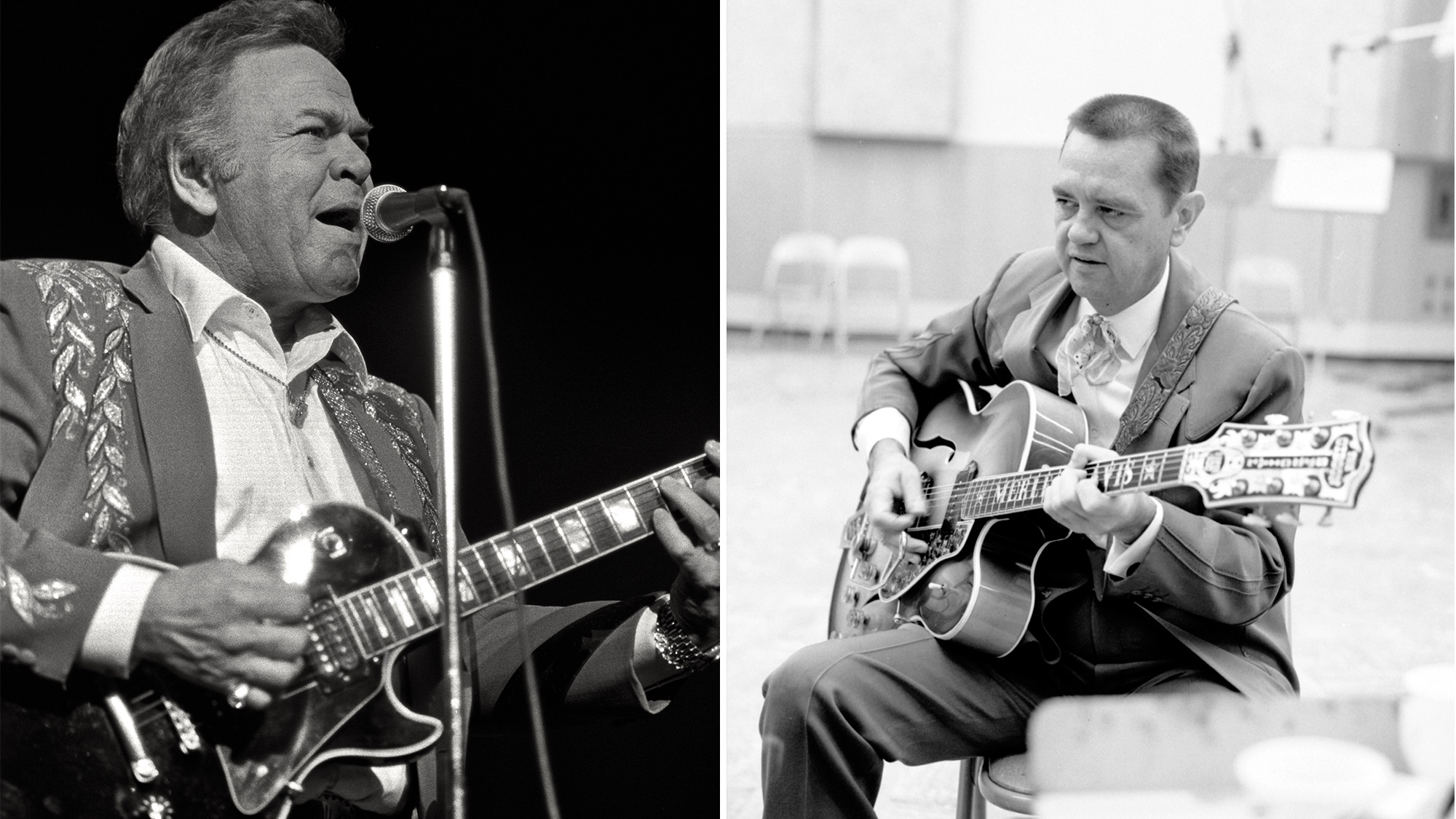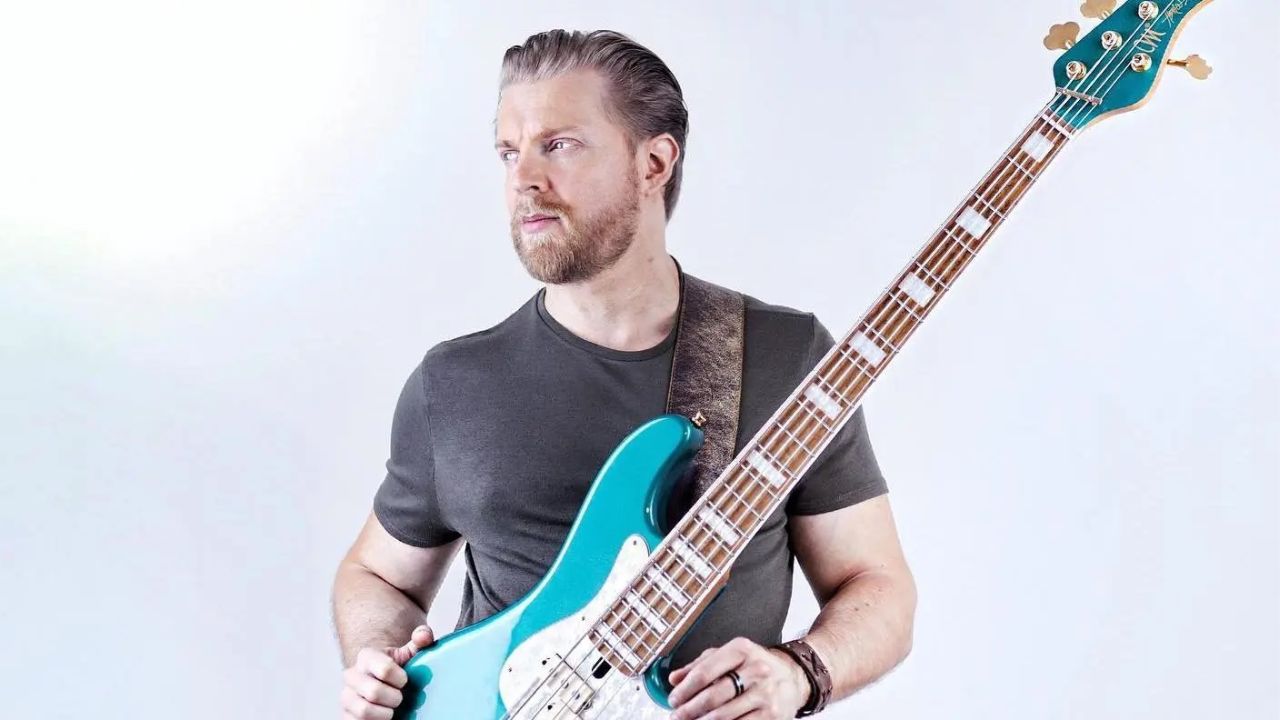“Bass should stand on its own. It’s as powerful as the guitar”: Conrad Lant on his disdain for Ampeg SVTs and how he bought Andy Fraser’s Gibson EB-3 for £50 – “It was the exact one he played on All Right Now!”
Venom, the original black metal band, have been invoking Old Nick since 1981. On the bass, meet Conrad Lant – ‘Cronos’ to the (black) masses
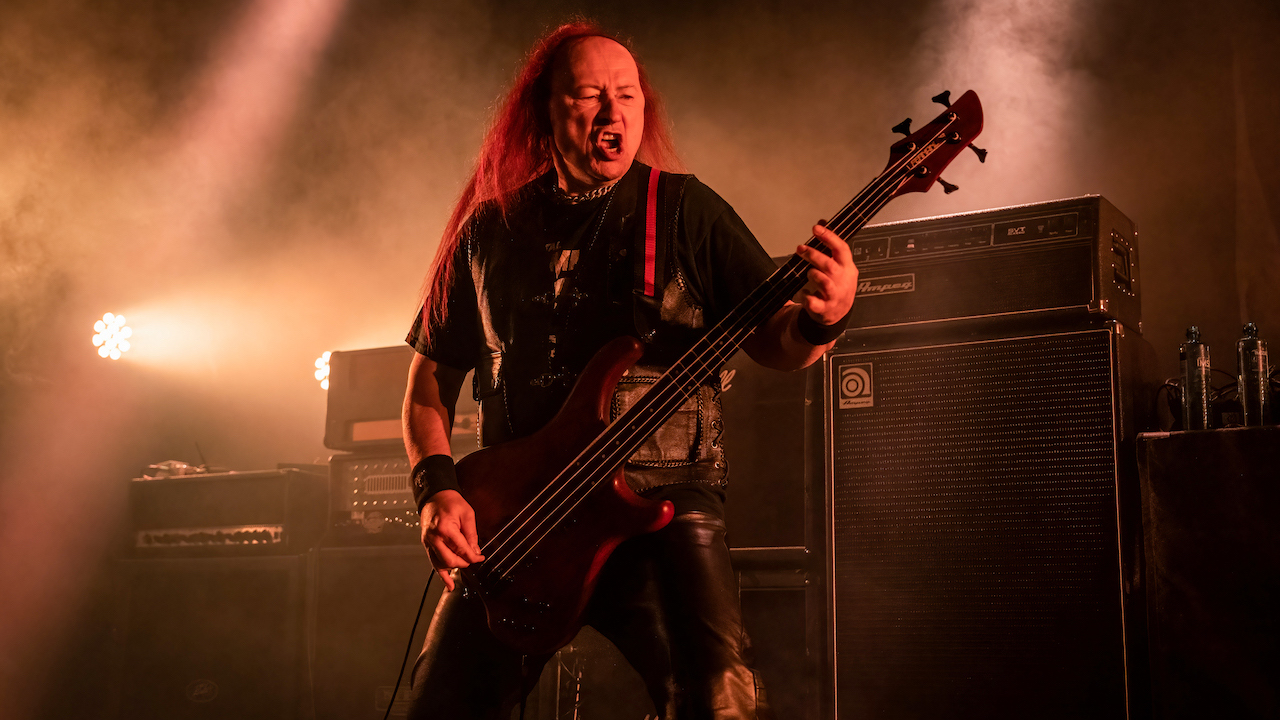
When we asked Conrad Lant of Venom how he got into the bass guitar in the late 1970s he told this great story. “I got into bass through a guy letting me down! I'd joined a band as a rhythm guitarist, but one day the bass player didn't arrive. I was working at Impulse Studios near Newcastle, which later became the home of Neat Records, and I asked the guy there if I could borrow a bass.
"We had a gig at the weekend and I figured I'd just play the root notes! I fell in love with that bass, a Gibson EB-3, and thought, ‘This is me!’ I bought it for 50 quid – and I was on 24 quid-a-week wages at the time, so you imagine what that was like – and it turns out it was Andy Fraser's bass, the exact one he played in All Right Now.”
Not a bad start for a career on bass that turned out to be rather longer than the couple of years for which Lant thought Venom would initially be around. All these years down the line, Venom is still touring regularly worldwide: how does Lant decide what songs to play live? “We’ve got so much back catalogue now, we could be on stage for five hours!” he told BP, before adding more seriously: “The last thing I want to be is a parody of what I was in the 1980s.
"If I can't come up with new ideas with a controversial edge, I don't want to be doing it. But I want the kids to be able to turn away from the stage and say ‘That's Venom up there..’”
As a power trio, the musicians in Venom have plenty of room to move around – that is, when they're not producing a wall of sound in unison. “I don't think the bass player needs to be hidden in the background. Bass should stand on its own, in metal anyway: it's as powerful as the guitar. I remember how bass tones changed when Pantera came out in the 1990s. All the heaviness was in the guitars.
"It's actually a bit of a nuisance for me, because if we're doing a gig where the backline is provided, they always assume I want that sound, and they give me Ampeg SVTs, which I can't stand. I can't get my sound out of them. I can get it from a Marshall head, a Peavey 6505, out of most amps, but not from Ampegs.”
Asked how he layers the instruments on his albums, Lant explained: “As the bass player I prefer to follow the drums rather than the guitar riffs, because if me and the drummer can create a brick wall, it works out much better for the guitarist to put a layer on. I prefer to get right into the groove which the drummer is nailing. I've actually changed my playing on some of the riffs because I follow his drum parts. It's heavier than if I just follow the guitars.”
Get The Pick Newsletter
All the latest guitar news, interviews, lessons, reviews, deals and more, direct to your inbox!
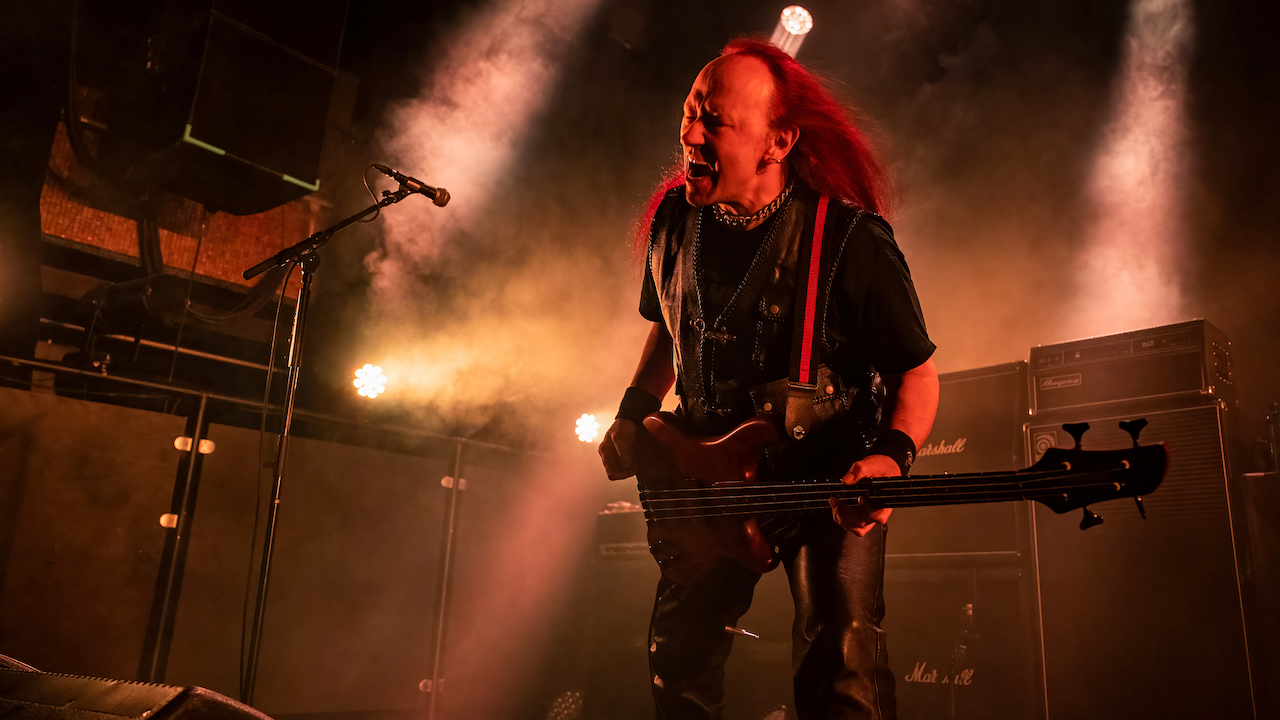
Unusually for any bass player, Lant customises his basses by removing the frets from the 12th fret upwards, resulting in a half-fretted, half-fretless instrument. “I've been doing that as long as I can remember now. All my basses are fretless from the 12th fret. The first thing I do whenever I get a bass is hook the frets out, fill them in and smooth them down. I always have two basses and two amps with me when we play live. I usually do a changeover halfway through the set anyway, because the first one is bound to have gone out of tune. We tune to C# now: we used to go a bit lower, but C# sounds the best.
“There’s one song, Evil Law, that features a bass that I got from a guy at a magazine in Germany. It has strings like railway lines, much thicker than a fifth string: they're like fingers! There's no name on that bass, but they made the neck specially so it can handle the tension. If you put those strings on a normal bass, it would snap the neck like that. We've christened it the Behemoth. It's massive, and it has the heaviest bass tone ever.”
“When we recorded that song, I didn't want it to be so bass-heavy that the other songs sounded light, so we had a bit of bother mixing it: we actually had to take some of the weight off. My distortion just comes from my fingers and a Marshall 800 head. I have a white cab with four 12-inch Celestions that I run the Acoustic head into, and my tone is right there, especially if you push the volume.”
So who influenced Lant on bass? “Geddy Lee was the first one that I focused on, when I'd just switched from guitar to bass and I needed to learn what I had to learn. Geddy's playing used to blow my mind on Xanadu where the notes he's hitting are not what I would consider as being in the right key. Straight away I was like, ‘How can he play those notes?’ and that opened me up in my own bass playing. Like in Seven Gates Of Hell. I would never have done that unless I'd heard Geddy. And when I play the middle bit of Bloodlust, I'm deliberately playing a fret higher than I should be, for effect. It creates the nastiness!”
“My sound is unique, and I'm actually a bit scared that I'm going to lose it one day, because I go through an Acoustic amp, which they don't make now like they used to back in the day. I look on eBay and I buy them up for parts. I got in touch with the company in California a while back, and asked to buy a couple of their new models. I was prepared to pay for all the shipping, but they told me I had to buy them from the stores in the States. So I don't know what their new gear is like – I'm just hoping that my old one from the 80s holds on!”
Joel McIver was the Editor of Bass Player magazine from 2018 to 2022, having spent six years before that editing Bass Guitar magazine. A journalist with 25 years' experience in the music field, he's also the author of 35 books, a couple of bestsellers among them. He regularly appears on podcasts, radio and TV.
“I asked Marcus to sing on it. As amazing as he is on bass, I think he’s underrated as a vocalist”: Having earned lofty status in bass-hero circles, Marcus Miller lent his vocal chops to Hadrien Feraud’s solo album
“I was playing stuff I don’t think James Brown understood. He told me, ‘You have to play the one – you’re playing too much’”: Six years after he quit touring, Bootsy Collins reflects on James Brown and George Clinton, and what he gets out of playing today




